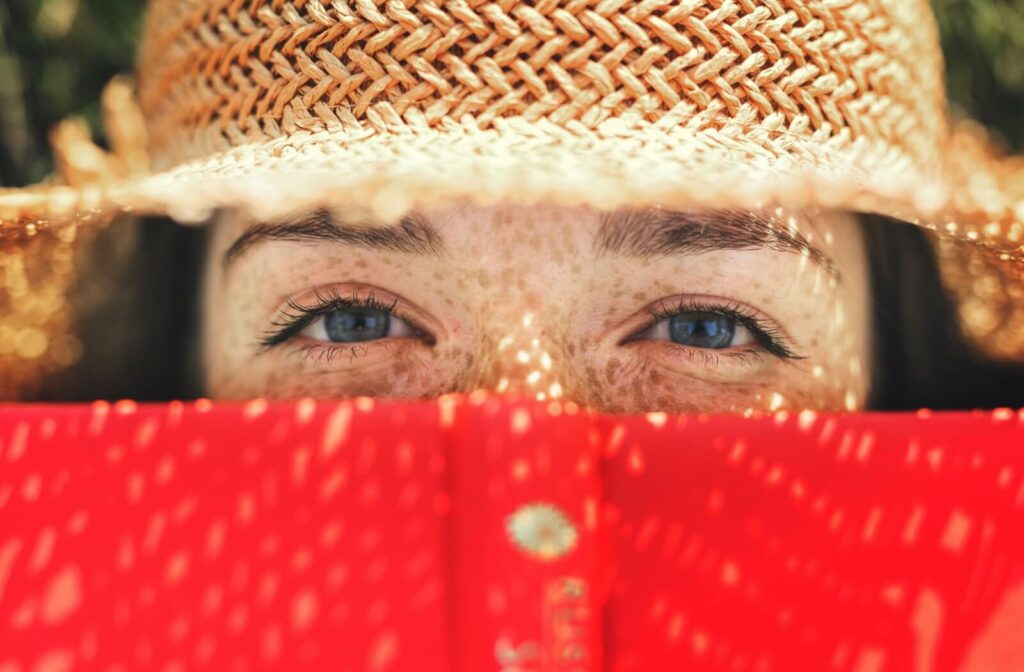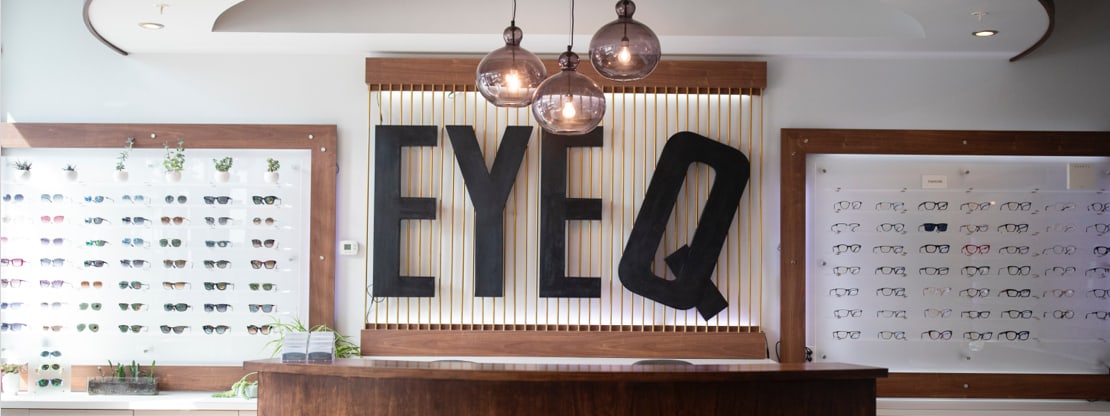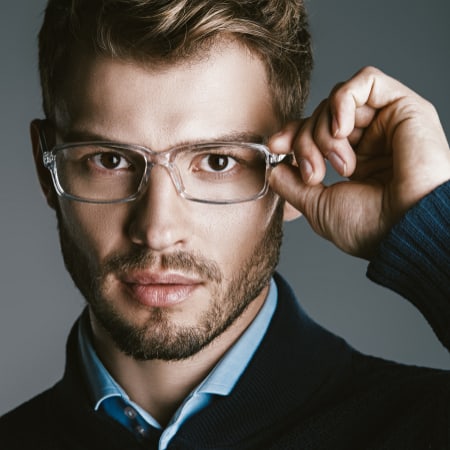If stepping outside into sunny weather has you squinting uncomfortable or reaching for your sunglasses more often than others, you’re not alone. Many people with light-coloured eyes (like blue, green, or hazel) are more susceptible to UV damage due to their eyes having less melanin, a pigment that protects against UV rays.
Fortunately, no matter what your eye colour is, there are plenty of ways (including simple sunglasses) to protect your eyes during exposure to the sun. Talk to your Optometrist for more personalized ideas based on your eyes and history.
Why Are Blue Eyes Sensitive to Sunlight?
The amount of melanin in your iris influences how your eyes handle sunlight. Melanin is the pigment that gives your eyes their color, and it acts as a natural filter against UV rays. Blue eyes inherently have less melanin than darker-colored eyes, so they provide less natural protection against bright light.
Think of it in terms of sunglasses. Dark brown eyes resemble sunglasses with a stronger tint, while blue eyes are closer to a lightly tinted lens. This reduced “shielding effect” means blue eyes are more likely to feel strain under the sun’s glare.
Are Other Eye Colours Equally Sensitive to Sunlight?
While blue eyes are considered the most sensitive, they’re not alone in experiencing challenges with brightness. Light-coloured eyes, such as green or hazel eyes, also have less melanin and can be moderately sensitive to sunlight.
Brown eyes, on the other hand, are typically better equipped to handle bright light due to their higher melanin content. However, even brown-eyed people can experience discomfort or damage from prolonged sun exposure, especially in environments with intense UV radiation.
How Sunlight Damages Our Eyes
Though sunlight is essential for our overall health, too much ultraviolet (UV) exposure can affect our vision and eye health. UV rays from the sun can penetrate the eye and harm delicate tissues. Over time, this exposure can contribute to problems such as:
- Photokeratitis: A sunburn for your eyes that results from intense UV exposure, often causing redness, pain, and sensitivity.
- Cataracts: Prolonged exposure to UV rays increases the risk of cataracts, a condition in which the eye’s lens becomes cloudy, impairing vision.
- Macular Degeneration: UV rays can also contribute to macular degeneration, a leading cause of vision loss that affects the retina’s center (the macula).
- Pterygium: Also known as “surfer’s eye,” this growth on the conjunctiva is often linked to excessive UV exposure.
While blue eyes may be more naturally vulnerable to these conditions due to their lower melanin, all eye colors are susceptible when UV protection is neglected.
How to Protect Your Eyes from Sun Damage
The good news is that with some simple precautions, you can protect your vision and enjoy the sunlight safely.
Invest in UV-Protected Sunglasses

Wearing high-quality sunglasses is one of the simplest and most effective ways to guard against UV exposure. Look for these key features when shopping for sunglasses:
- UV Protection: Ensure they block 100% of UVA and UVB rays. Labels specifying “UV400” provide the best protection.
- Polarized Lenses: These reduce glare, making them an excellent choice for outdoor activities like driving or hiking.
- Wraparound Design: Sunglasses covering the sides of your eyes provide protection against UV rays sneaking in.
Sunglasses aren’t just about comfort—they’re also necessary for long-term eye health. Pair them with a broad-brimmed hat for even better coverage!
Smart Habits for Protecting Your Eyes
Beyond sunglasses, here are other proactive ways you can protect your eyes from the sun:
- Avoid prolonged sun exposure: Limiting direct exposure during peak sunlight hours can reduce strain and UV exposure.
- Never look directly at the sun: Looking at the sun directly, even briefly, can cause permanent damage to your retinas.
- Use UV blocking contacts: If you wear contact lenses, ask your Optometrist about lenses with built-in UV protection. These are an excellent supplement to sunglasses for those with vision correction needs.
- Practice eye hygiene: Staying hydrated and using lubricating eye drops can help mitigate dryness and discomfort, which can sometimes worsen in sunny environments.
These protective habits are even more critical to prevent long-term damage for those living in regions with intense sunlight or high altitudes–like here in Calgary!
Take Care of Your Eyes Today
Blue eyes may be more sensitive to sunlight, but that doesn’t mean you have to avoid sunny days. At Eye Q Optometry, we can provide you with the proper precautions so that you can keep your eyes protected while enjoying the outdoors. Remember, eye protection isn’t just about comfort—it’s an investment in your long-term vision.
Contact us today for personalized advice if you’re unsure about your eye health. By prioritizing sun protection and developing a daily care habit, you can ensure that your eyes remain healthy and bright, regardless of colour.










